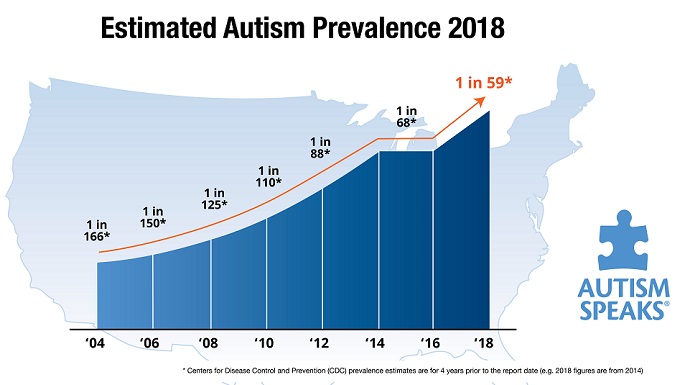 The US Center for Disease Control (CDC) estimates that over five million adult Americans are living on the autism spectrum. Furthermore, the CDC estimates that 1 in 59 children has autism. It is the fastest-growing disability in the country, doubling in the past 15 years.
The US Center for Disease Control (CDC) estimates that over five million adult Americans are living on the autism spectrum. Furthermore, the CDC estimates that 1 in 59 children has autism. It is the fastest-growing disability in the country, doubling in the past 15 years.
In the next decade, 500,000 individuals with autism will graduate from the school systems into the work-world. Based on current statistics, nearly 80% of these adults will be unemployed or underemployed. Of the few lucky enough to have jobs, many are stuck in low-skilled, manual labor positions that fail to develop their skills and talents.
Largely as result of these poor employment opportunities, society must bear the cost of supporting these individuals. The cost of supporting a single individual with autism throughout their life is estimated to cost as much as $2.4 million. Given the staggering growth in the number of people with autism, the annual cost is estimated to exceed $125 billion in the US alone.
Many new organizations have emerged to focus upon early diagnosis and intervention. Public schools have adapted their curriculum and services to support this rapidly-growing population. Unfortunately, existing support organizations have been decimated by both state and corporate budget cuts. They often lack the resources and tools to address the rapidly-approaching wave of adults with autism ready to enter the workforce. The majority of these programs end by the time an individual enters adulthood… at the precise moment when he or she is ready to enter the workforce.
Many individuals with autism are ready and eager to enter the workforce. We must shift our approach to provide this opportunity. We must focus upon their unique abilities. We must create workplaces and jobs that empower people with autism to build rewarding and productive careers while contributing to the growth of diverse businesses.
Autism is a spectrum disorder and people with autism have a wide range of capabilities and challenges. Many possess skills that are valuable for today’s economy. They often show a great attention to detail and a desire to engage in repetitive tasks for extended periods of time. Many possess exceptional skills with facts and numbers. Their skills are well-suited for software testing, updating website content, processing financial transactions, and many other similar activities.
While the capabilities of many people with autism are exceptional, many also have challenges that make it difficult for them to manage the complex interpersonal interactions present in most workplaces. These challenges can make it difficult for people with autism to succeed even when they possess the required functional skills.
AutonomyWorks provides our Associates with a custom-tailored working environment that is optimally suited to their unique needs. Associates also receive occupational support, job coaching, and training in the workplace. We work with them to track their performance and identify opportunities for additional training, expanded responsibility, intrinsic and financial rewards.
